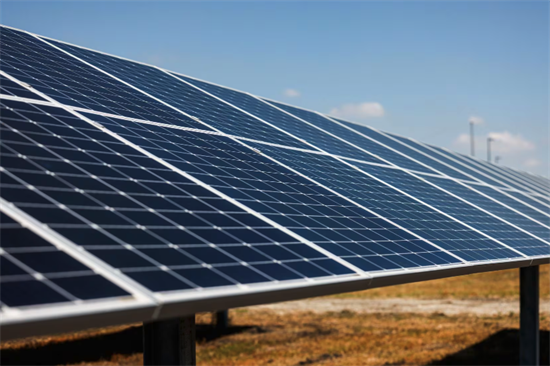In the News
Texas wants solar energy, but forced labor in China is a concernAuthorities must remain vigilant with unfair trade practices and human rights violations.
Washington,
January 12, 2024
Texas wants solar energy but forced labor in China is a concern 1:30 AM on Jan 12, 2024 CST As seen in the Dallas Morning News Texas is blessed with abundant natural resources and is a powerhouse in energy production. As theundisputed leader in domestic oil production and wind energy, Texas’ greatest opportunity perhaps lies with the sun. During the last decade, solar energy installation has exploded in the Lone Star State. Today, Texas is poised to dominate solar. Over 5.5% of Texas’ energy comes from solar, but that number is expected to grow as the state adds 38 gigawatts of new solar energy over the next five years. This growth has been fueled by a 42% price decline over the last 10 years. While the deployment of affordable renewable energy is great for Texas, the broader solar supply chain is cause for concern. Unfortunately, many solar panel manufacturers are entirely reliant on cheap Chinese materials with opaque traceability and forced labor concerns in the Xinjiang province. The State Department has concluded that since Xinjiang produces 45% of the global polysilicon capacity and a significant amount of silicon metal, much of the global solar supply chain could include inputs made with forced labor from the region. As a result, Congress passed the Uyghur Forced Labor Prevention Act in late 2021, creating a rebuttable presumption that all goods, made in whole or in part, from the region contain forced labor and are thus barred from entering U.S. commerce. Customs and Border Protection is tasked with enforcing the law and Congress specifically directed CBP to target polysilicon from Xinjiang. Since enforcement began in June 2022, CBP has detained over $2 billion in goods. According to a State Department report on human rights abuses, the Xinjiang region of China is home to at least 11 million Turkic Uyghurs, a mainly Muslim ethnic minority, and various other Muslim minority groups. Since at least 2017, China has engaged in a sustained and widespread campaign of human rights abuses against this population, including imprisonment, forced labor, torture, enforced sterilization, child separation and religious persecution. It is for these reasons the Uyghur Forced Labor Protection Act was passed, to prohibit companies from profiting from human rights abuses. CBP’s enforcement efforts, however, have not been without scrutiny. Recently, two members of the Texas congressional delegation — representatives Jodey Arrington and Beth Van Duyne — joined a bipartisan group in the House Ways and Means Committee to demand more vigilant enforcement of the UFLPA by CBP. Specifically, they noted “CBP has released nearly half of detained electronics shipments, which include solar products” despite the “heightened risk of forced labor given that [China] hosts over 97% of global wafer production and nearly 80% of global polysilicon capacity.” While it is difficult to ascertain an exact number from CBP data, it appears the bulk of the releases are shipments that use U.S. or European polysilicon supply. As such, the solar module market has bifurcated with some Chinese, Indian and Korean manufacturers rolling the dice by using record-low priced Chinese polysilicon and undercutting competitors using ethically sourced polysilicon. At the very least, these market dynamics highlight flaws in CBP’s targeting efforts. Case in point, until very recently Canadian Solar — a nominally Canadian but decidedly Chinese company — was not being detained at all. This is in spite of Canadian Solar admitting in its Securities and Exchange Commission filings “solar modules imported into the U.S. contain polysilicon sourced from the Inner Mongolia, Hubei and Shaanxi provinces of China.” Given the upstream raw material and silicon metal sourcing risks in China, more investigation is needed. Undeterred by the recent enforcement actions, Canadian Solar has announced the development of a 5GW solar panel assembly plant in Mesquite. Another company — India-based Waaree Solar — isdeveloping a solar facility outside Houston. Waaree has been accused of evading the UFLPA by using Chinese wafers and cells in its Indian-assembled solar modules. It remains to be seen if Canadian Solar and Waaree will continue to use Chinese inputs. What is clear is that Texans won’t stand for solar energy if it’s dependent on forced labor in China. Texas is fortunate to have leaders like Reps. Arrington and Van Duyne who are willing to hold CBP accountable and demand swift action. Only through broad-based CBP-targeting of all solar imports with China-sourced polysilicon will the current market trends correct. Solar energy has a bright future in Texas, but only robust UFLPA enforcement will ensure it’s not tainted with forced labor. |



